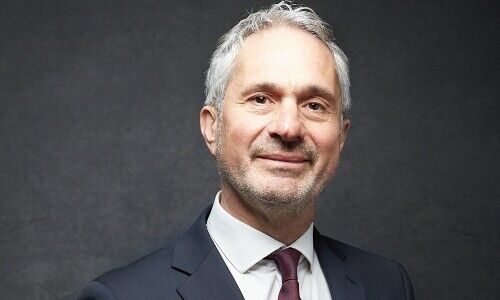Last month’s rain in many parts of Europe may have briefly boosted water levels, but it will not have eliminated the risk of drought this summer. Algebris Investments’ Valerio Camerano told finews.com how investors and policymakers should address the green transition and what the asset manager plans for the Zurich office.
After parts of southern Europe ran out of drinking water already early in the year and with imminent droughts on the continent’s horizon, public attention has switched from the energy crisis to water shortage.
«It is so easy to forget what happened a year or even a few months ago,» Valerio Camerano said, adding that only eight months ago «we thought we were running out of energy on this continent. Now with energy prices back to pre-(Ukraine) war levels, this scenario seems distant.»
However, the problem is not just about drinking water, but about «the overall availability of water for such things as cooling of power stations and agriculture,» he said.
All the while the energy emergency hasn’t disappeared, «Germany as well as eastern European countries, which have relied heavily on energy supplies from Russia in the past, still run an acute risk of running short of gas next winter,» Camerano added.
Industrial Banker
When the London-based asset manager Algebris Investments set up a new unit dedicated to the energy and environment transition with a green transition private equity fund, it found an industry insider in Valerio Camerano, the former CEO of Italy’s multi-utility company A2A Group, who started his career as an investment banker at Citi.
Algebris’ newly created business unit invests in companies dealing with the green transition and tackling the scarcity of resources. The group manages its €19 billion assets from eight locations across three continents. With its recently opened Zurich office, where some of its key investors are based, it is aiming to expand further into the DACH region.
Carbon Sequestration and Recycling Cobalt
Its private equity fund invests in industries focused on the energy transition, the circular economy and technologies for agriculture and cities.
Camerano is not the only hire with strong know-how from the energy sector, the whole team has a financial and industrial background required for analyzing electrical engineering and infrastructure projects and understanding processes, such as sequestration of carbon or hydrogen, as well as the hydrometallurgy solutions being used to recycle critical materials like cobalt or lithium out of batteries.
«Whichever angle you take, the emergencies we are currently facing all come with a complexity that needs to be addressed from all industries,» Camerano said.
Consumption Cost
Yet, the cost of consumption is also triggering prices in the base energy industries, which is why «there is a strong investment case for companies involved in decreasing consumption and waste, as well as recycling and regenerating base and critical materials,» Camerano said.
For Camerano, the climate crisis is starting to look and more like a pandemic with authorities, investors and policymakers finding themselves having to react with «extraordinary measures» to emergency scenarios.
Resource Scarcity
He would rather have stakeholders come to see the «green transition as a normal factor» and an opportunity to change the agricultural, industrial and energy systems in a planned and disciplined way.
«Afterall, for industry experts it is not news that we may run out of energy next winter, it is simply the normal course of business in a world of scarce resources,» he said.




































